Cory Booker Gets Real About Reproductive Justice
\201cYou don’t have to say, ‘oh, I have a wife or a daughter’ to care about this and to step up.\201d
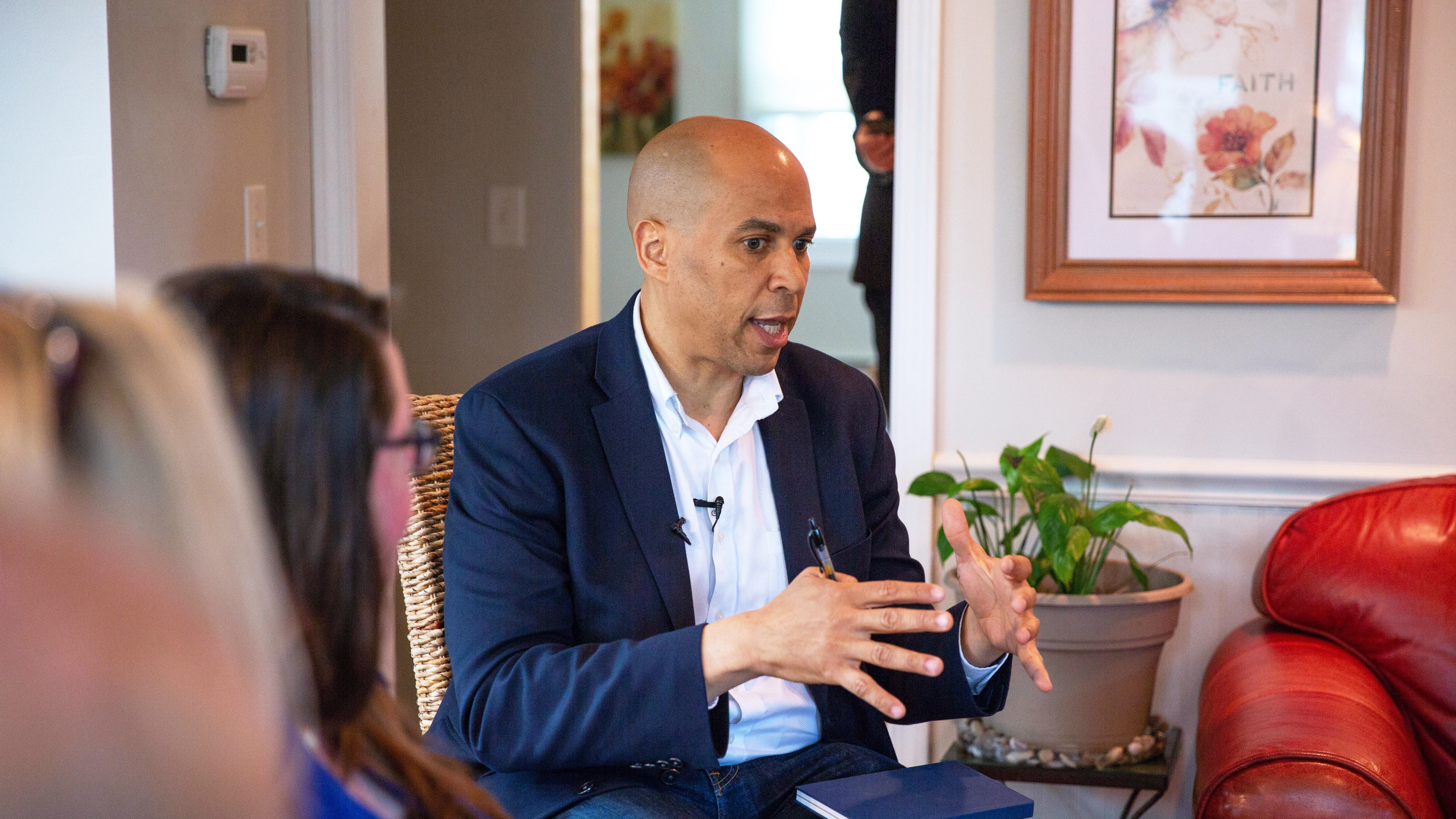

I don’t think I’ve ever heard a man, let alone a man who’s running for president, use the word “doula” as much as Senator and presidential candidate Cory Booker does. In fact, I don’t know if I’ve ever heard a man use the word “doula,” unless it’s preceded by “what the hell is a.” But Booker, who on a recent weekend trip to Iowa pledged again to make reproductive rights “a central part” of his administration, throws it around like it’s second nature.
In the cozy living room of a Democratic Party county co-chair in Burlington, in the south-east corner of the state just across the Mississippi from Illinois, Booker spent a Saturday morning meeting with local reproductive rights activists who have watched their nearby Planned Parenthood clinics close in the last several years.
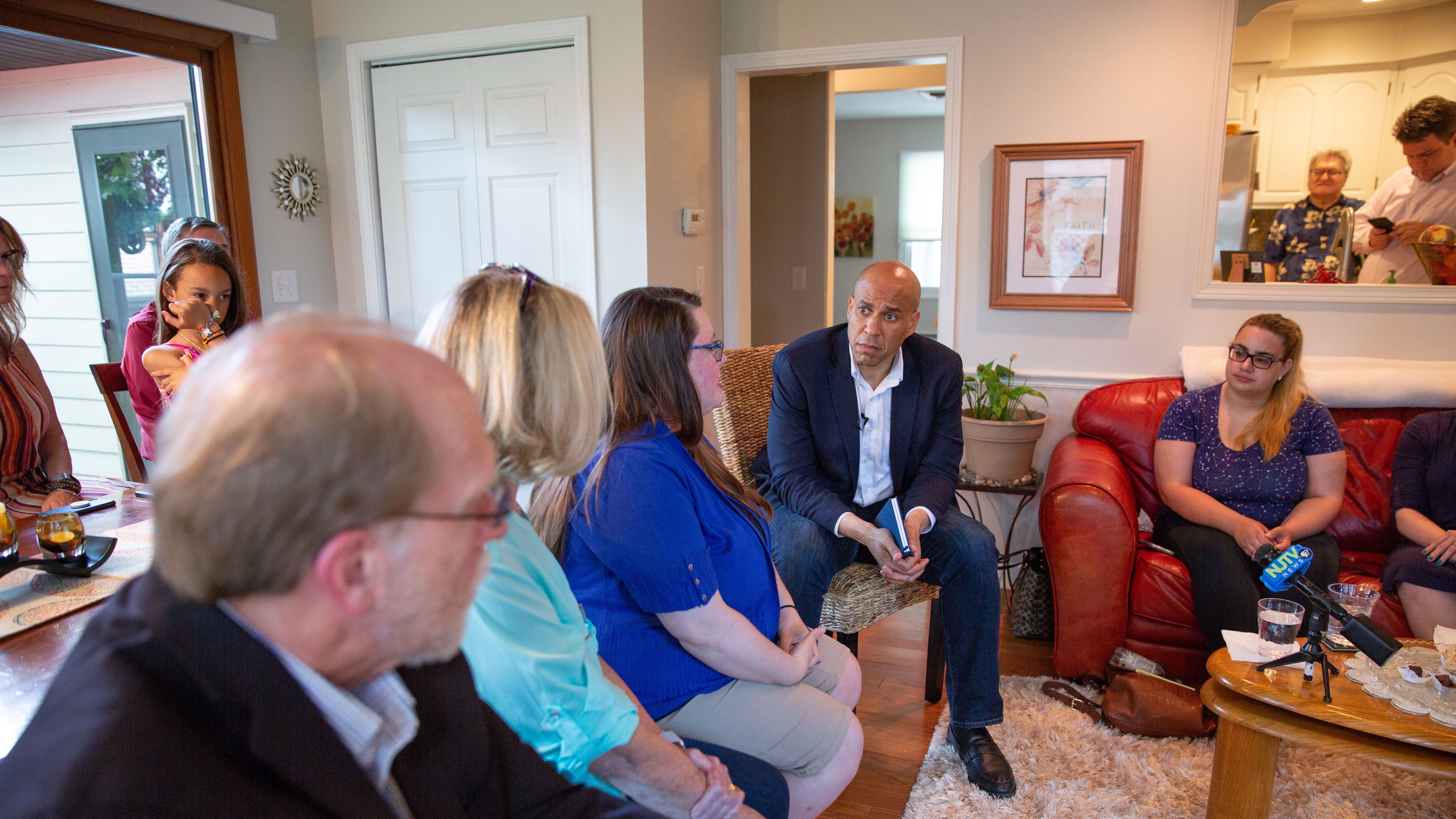
Booker listens to Phoebe McNeece talk about how Planned Parenthood has helped her.
Booker kicked off the morning by saying a few words about recent draconian restrictions on abortion access in places like Alabama, Missouri, and Georgia. He reiterated his commitment to restoring and expanding abortion access, and said that he wants to challenge men to play a leadership role in that fight. “You don’t have to say, ‘oh, I have a wife or a daughter’ to care about this and to step up,” he said.
Booker also noted that the very states that are restricting abortion have refused to make health care more affordable for parents and children by refusing to expand Medicaid. One result is that the U.S. has the highest maternal mortality rate of any industrialized nation. And while our peer countries are solving the problem of women and babies dying preventable deaths, our rates are going up. The numbers are particularly dire for for Black women, who are three times more likely than white women to die during pregnancy or childbirth. Beyond expanding Medicaid, Booker listed a suite of policies that could help alleviate the crisis: paid parental leave, paid sick leave, and more affordable holistic post-partum care. “Why don’t low income women have access to doulas?” he asked.
Booker listed a suite of policies that could help alleviate the crisis: paid parental leave, paid sick leave, and more affordable holistic post-partum care. “Why don’t low income women have access to doulas?” he asked.
Alexandra Rucinski, 29, sat across from Booker and told him her story. She grew up in a conservative family and was taught all about abstinence and nothing about contraception. When she became sexually active in her early twenties, she got pregnant “really quick.” When she walked into a Planned Parenthood clinic for the first time, she was terrified. She’d always been told that Planned Parenthood was an evil organization.
Rucinski started crying as she told Booker about what she’d actually found there: kindness and compassion. “There was no agenda, it was about what I wanted,” she said.
Phoebe McNeece, 33, told Booker about learning that she was pregnant shortly after attempting suicide for the second time. Like Rucinski, she went to Planned Parenthood for care, and like Rucinski, she decided to stay pregnant.
Stay In The Know
Get exclusive access to fashion and beauty trends, hot-off-the-press celebrity news, and more.
Until the nearby clinic closed, both women had been going there for contraception and other health care. “I kept going back,” Rucinski said, “because I wanted to take care of myself and my son.” Her son and Phoebe’s are about the same age, and when the roundtable was over, Booker recorded videos for both boys on their mothers’ phones. In one, he said, “we have something in common: We both think your mom’s amazing.” In the other, he described the boy’s mother as “the original Wonder Woman.”
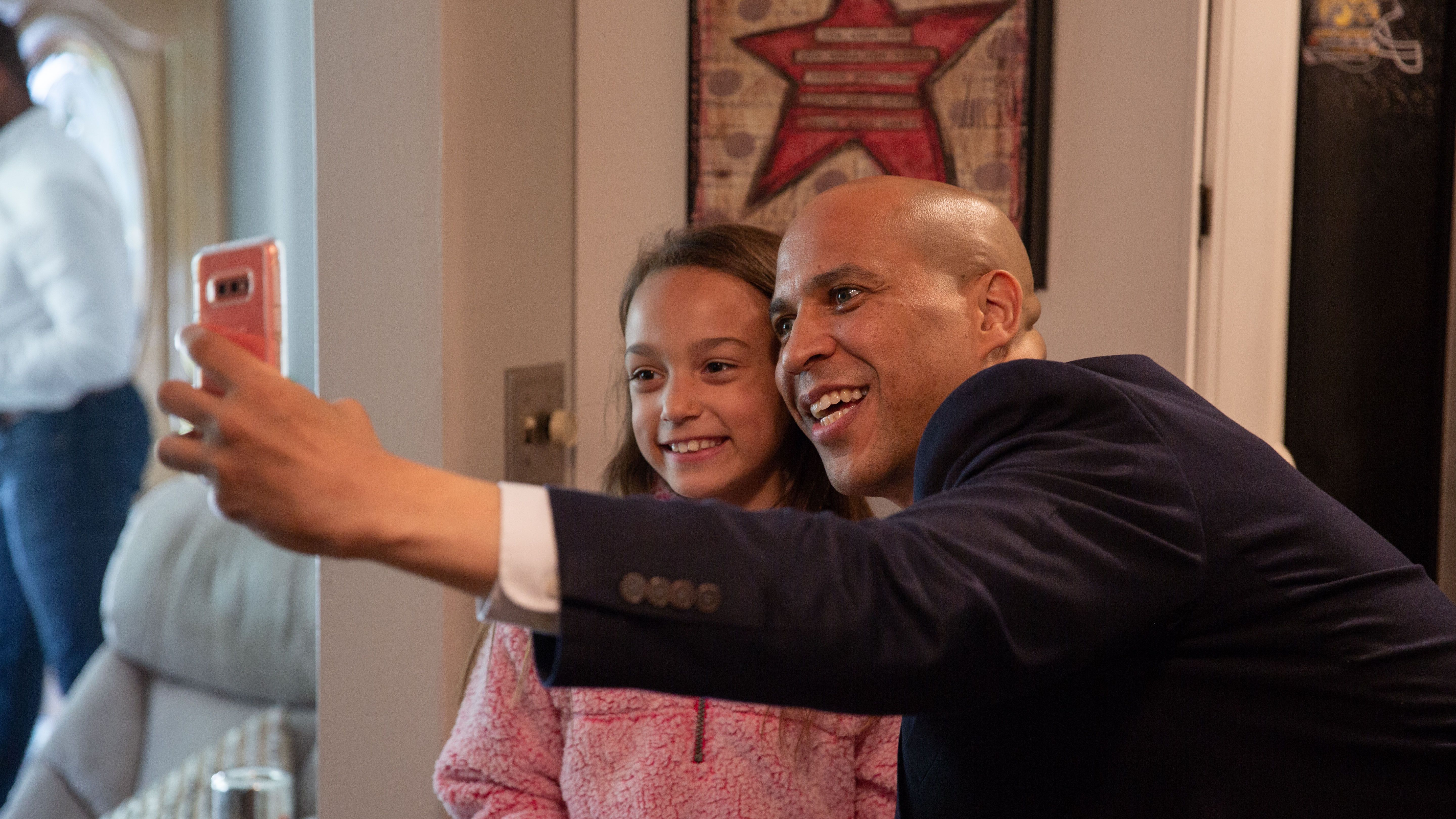
Booker poses for a selfie with the granddaughter of the roundtable hosts.
Later, as Booker and his team travelled north from Burlington to Muscatine in a rented RV, I asked him how he came to learn about doula care. He said his awareness about maternal mortality, and the importance of pre- and post-partum care, dates to his time as Mayor of Newark, New Jersey. “I used to say back in Newark, ‘in God we trust, but everyone else, bring me data, ” he explained, leaning across the tiny table to emphasize the point.
In Newark, the data on maternal mortality, and on the effectiveness of doulas and programs like the Nurse-Family Partnership, are undeniable. Booker served as Mayor from 2006 to 2013, when maternal mortality was already on the rise nationwide, especially for Black women. Newark’s population is 50 percent Black, and 28 percent of residents live below the poverty line. Black women in New Jersey are three-and-a-half times more likely to die from pregnancy or birth complications than their white counterparts, and their babies are at a much higher risk of being born underweight or dying before their first birthday.
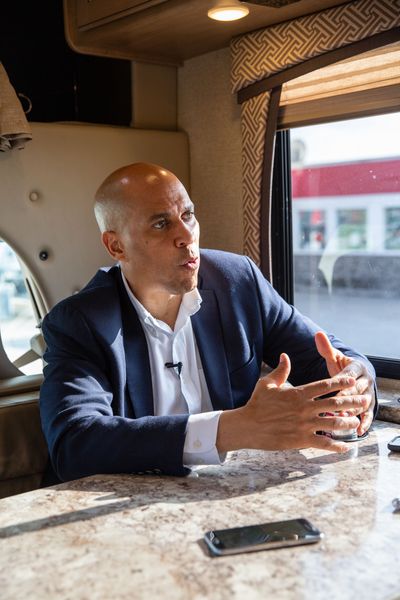
Booker passionately explaining the effectiveness of nurse and doula care for low-income women in Newark, NJ.
Doula care—in which a trained birth professional attends to the needs of a pregnant person during and immediately after they give birth—is one effective intervention into this public health crisis. Doula care can cut rates of low birth weights and premature births in half, and according to a study published in The Journal of Perinatal Education, people who have a doula present when they give birth are “two times less likely to experience a birth complication involving themselves or their baby, and significantly more likely to initiate breastfeeding.”
Then there’s the Nurse-Family Partnership, which Booker spoke about in glowing terms as the RV trundled along a two-lane highway past soybean and corn fields. The Partnership matches a low-income first-time mother with a registered nurse who visits her in her home throughout her pregnancy and beyond, until her child’s second birthday. It has been stunningly effective. The program reduces the risk of hypertensive disorders like preeclampsia, lowers maternal mortality, reduces child abuse and neglect, makes it easier for mothers to recover from opioid addiction, and reduces the risk of childhood obesity.
In 2002, when he first ran for mayor, Booker campaigned on expanding access to prenatal care for low-income women, and on preventing unwanted teen pregnancies. By 2013, when he was running for the Senate, he was talking up the value of visiting nurse programs for health, education, and crime prevention outcomes.
You don’t have to say, ‘oh, I have a wife or a daughter’ to care about this and to step up.
Once he got to the Senate, Booker—who said he sometimes has to explain to his male colleagues in Washington what a doula even is—took his advocacy for holistic women’s health care with him. In 2018, he was one of several Senators to introduce the Maximizing Outcomes for Moms through Medicaid Improvement and Enhancement of Services Act, also known as the MOMMIES Act (Booker’s rivals for the Democratic nomination Sen. Kirsten Gillibrand and Sen. Kamala Harris were co-sponsors). Medicaid covers about half of all births in the U.S.; the bill would extend its coverage period from 60 days to a year after birth, and make sure that women on pregnancy-related Medicaid could use the program to cover all health care. Also in the bill: stipulations that would make it easier for low-income women to afford doula care, which is inconsistently and inadequately covered by insurance of all kinds. The bill died, but Booker re-introduced it this year, just before Mother’s Day.
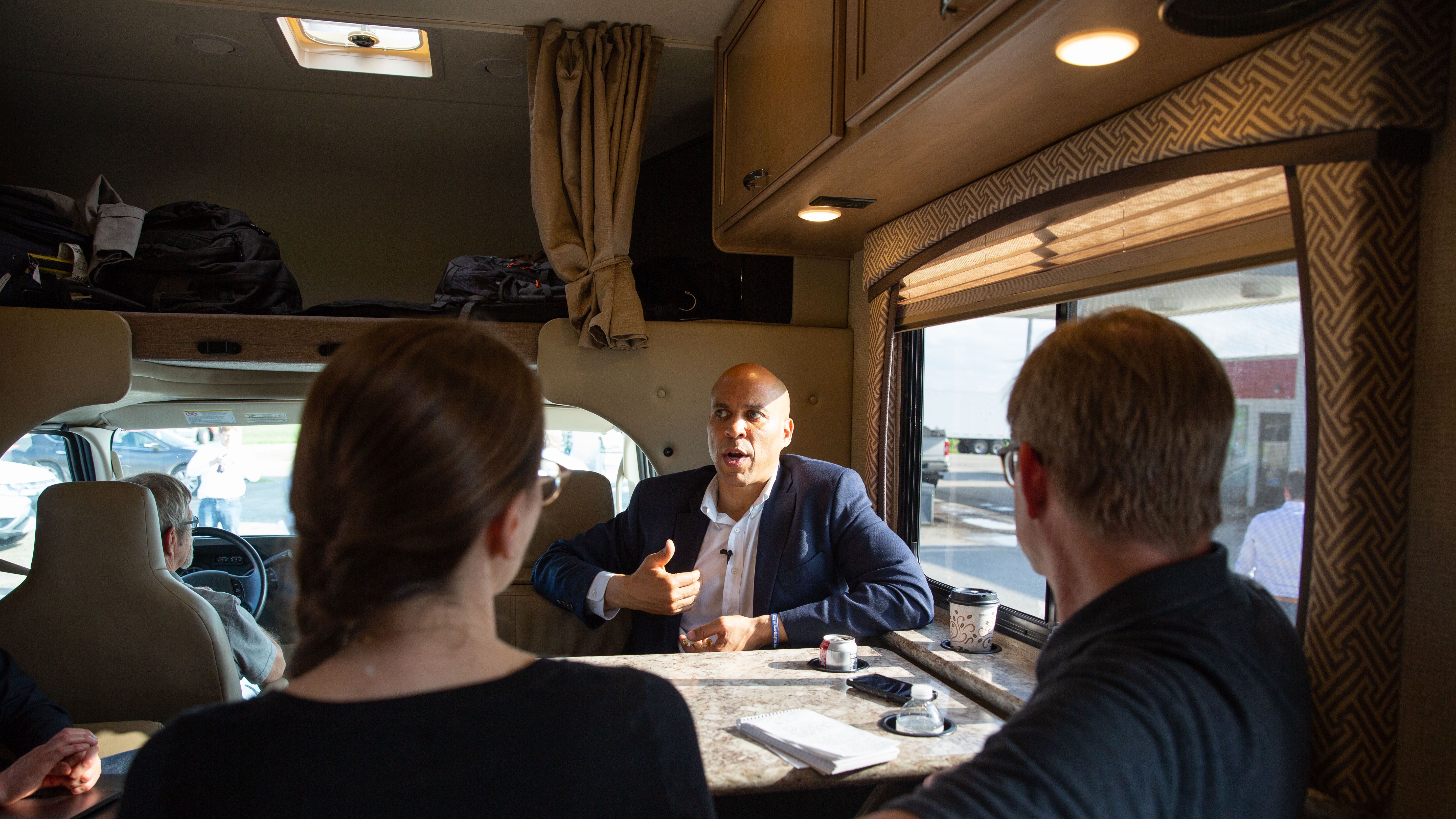
Booker lays out presidential priorities en route to his next campaign stop in Iowa.
Even though he doesn’t usually use the words, what Booker’s talking about—what’s he’s calling for when he links abortion access and contraception to doula care and children’s health—is reproductive justice. The reproductive justice framework, which was envisioned and evangelized by Black women, insists on “the human right to maintain personal bodily autonomy, have children, not have children, and parent the children we have in safe and sustainable communities.”
Reproductive justice, its proponents stress, is about more than abortion and more than any individual woman’s personal choice: It’s about building systems that work for everyone, regardless of if, how, or when they want to make a family.
Booker’s question in that Burlington living room—“why don’t low income women have access to doulas?”—was a rhetorical one. In a world remade by reproductive justice, they would.
For more stories like this, including celebrity news, beauty and fashion advice, savvy political commentary, and fascinating features, sign up for the Marie Claire newsletter.
MORE ON THE 2020 PRESIDENTIAL CANDIDATES
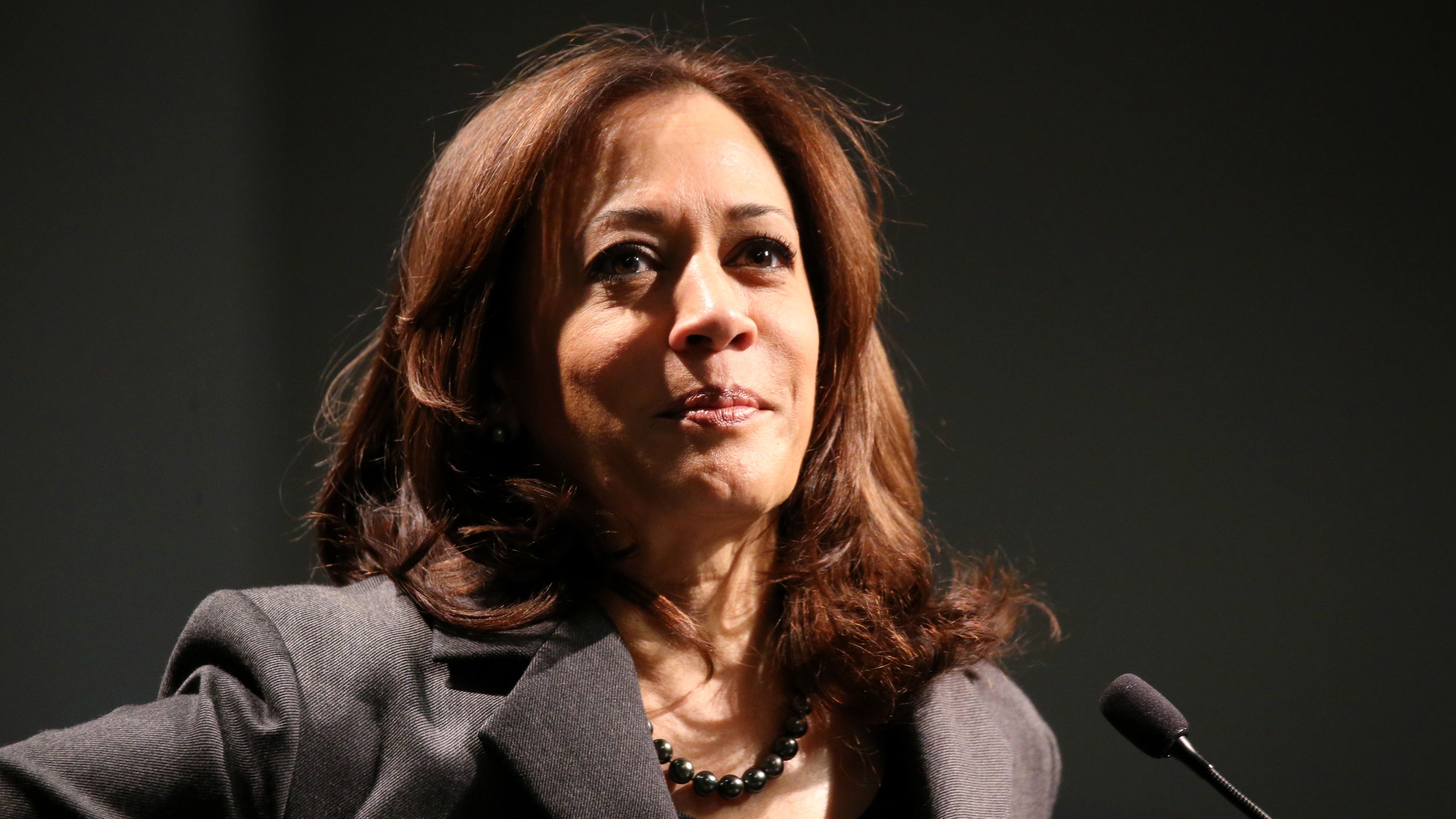
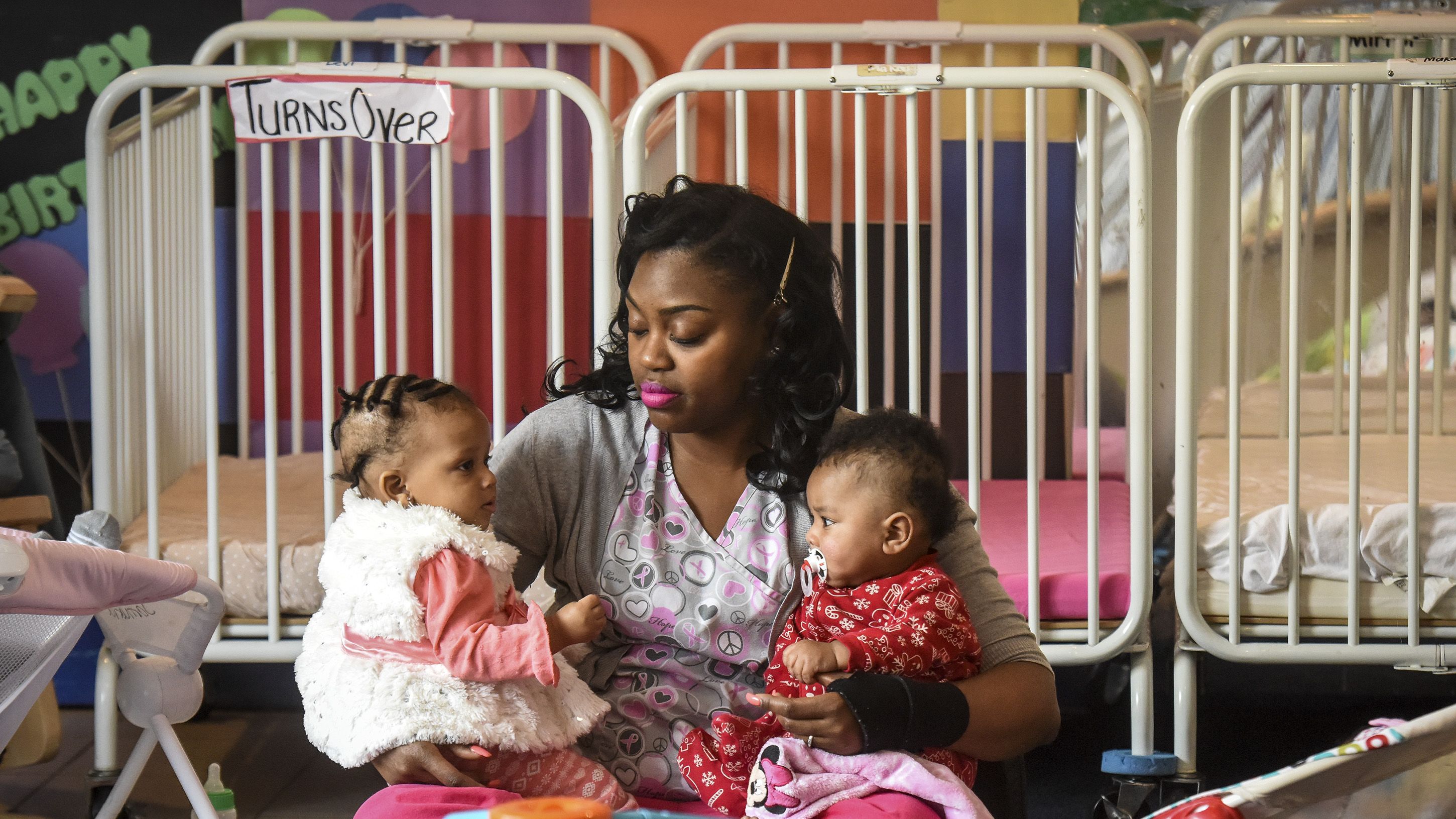
Chloe Angyal is a journalist who lives in Iowa; she is the former Deputy Opinion Editor at HuffPost and a former Senior Editor at Feministing. She has written about politics and popular culture for The New York Times, The Washington Post, The Atlantic, The Guardian, New York magazine, Reuters, and The New Republic. Angyal has a Ph.D. in Arts and Media from the University of New South Wales.
-
 Kylie Jenner Is Doing the "Heavy Lifting" in Timothée Chalamet Romance
Kylie Jenner Is Doing the "Heavy Lifting" in Timothée Chalamet RomanceThe couple's behavior allegedly "tells two completely different stories."
By Amy Mackelden Published
-
 My Only Summer Goal Is to Smell Like Diane Keaton's Garden
My Only Summer Goal Is to Smell Like Diane Keaton's GardenThanks to a fruity new fragrance trend, it's fully possible.
By Ariel Baker Published
-
 Kendall Jenner Gives an All-Time Basic the Coachella Treatment
Kendall Jenner Gives an All-Time Basic the Coachella TreatmentShe's going back to her roots.
By Kelsey Stiegman Published
-
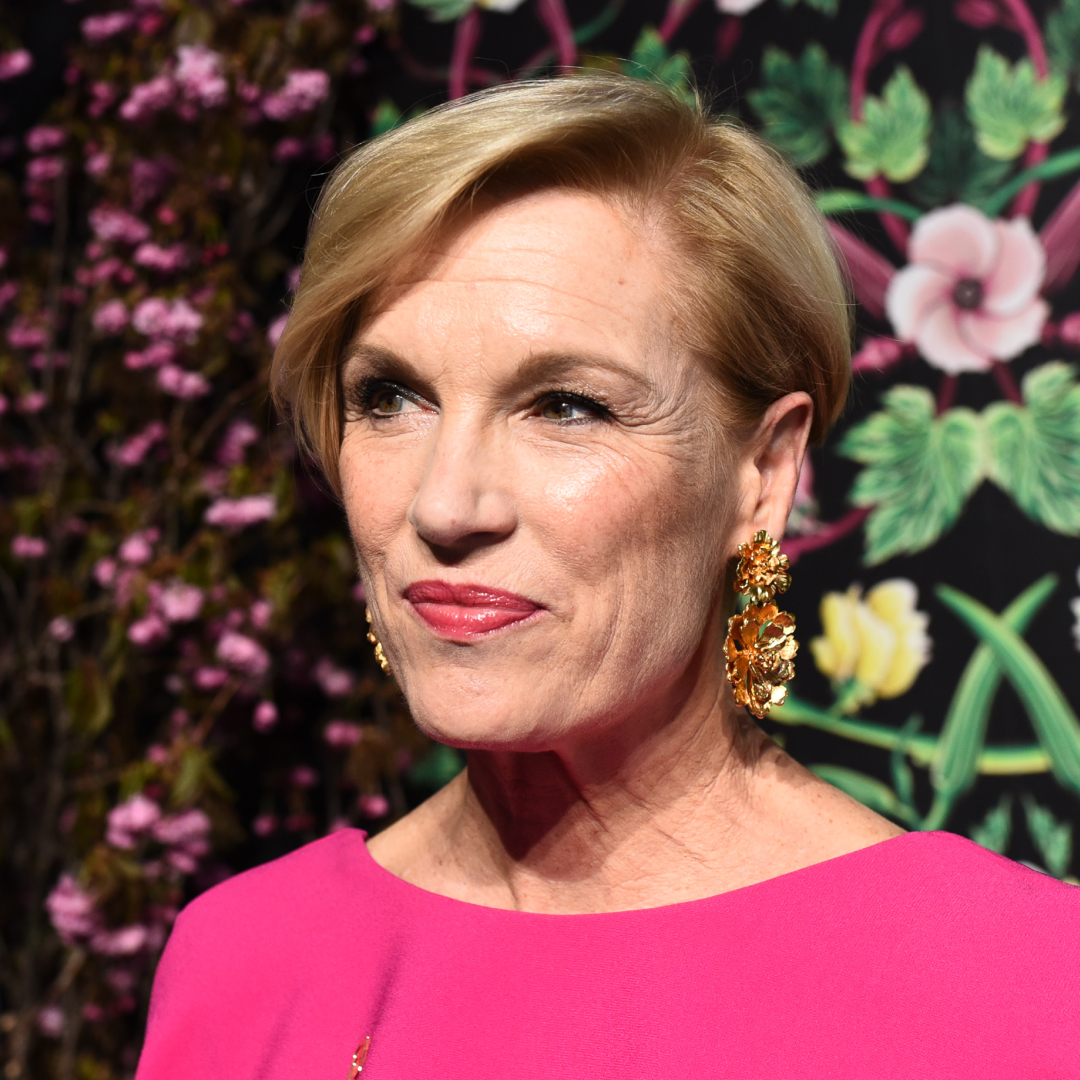 Cecile Richards, Former Planned Parenthood President and Women's Rights Activist, Has Died at Age 67
Cecile Richards, Former Planned Parenthood President and Women's Rights Activist, Has Died at Age 67"Our hearts are broken today but no words can do justice to the joy she brought to our lives."
By Amy Mackelden Published
-
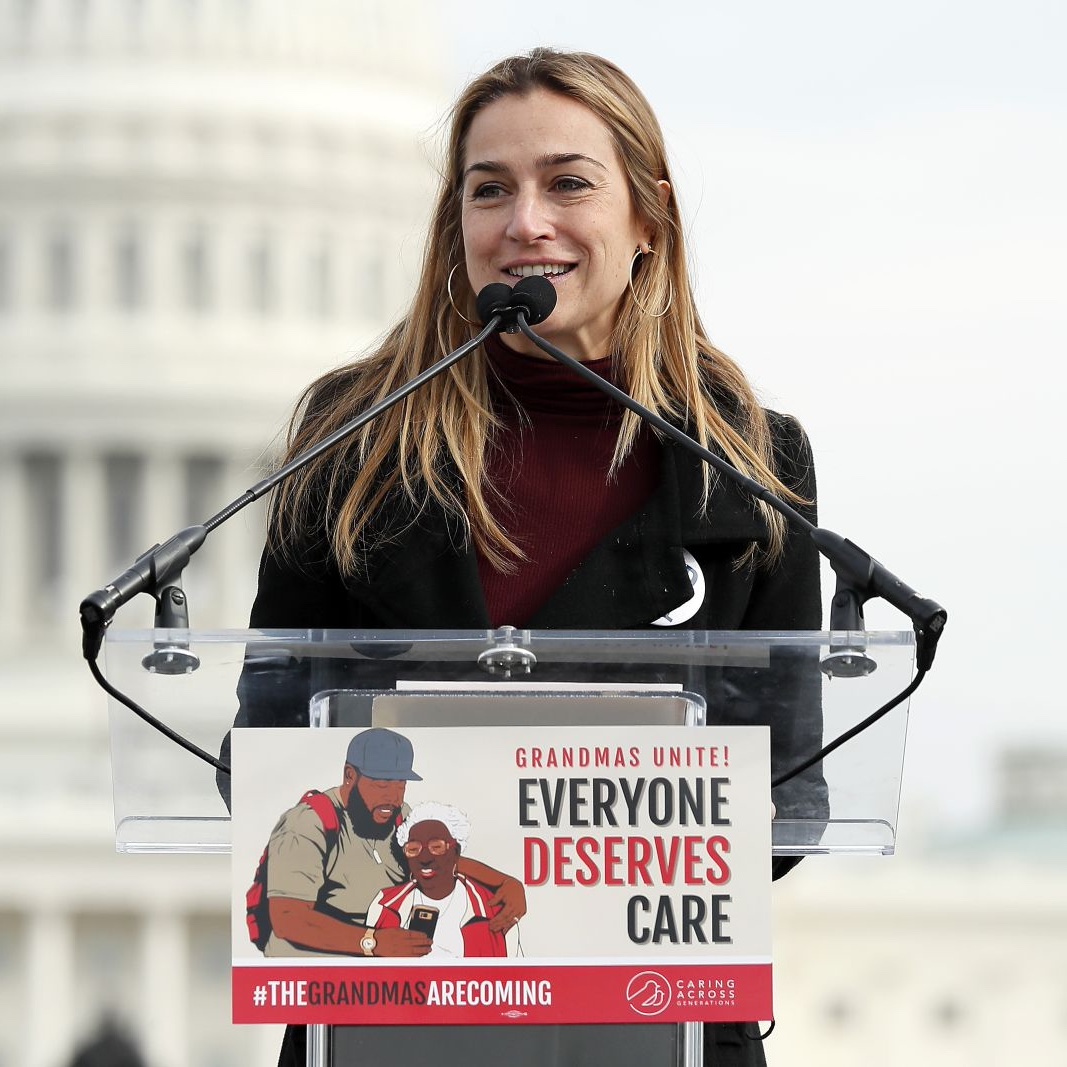 What's the Holdup in Biden's Push for Paid Leave?
What's the Holdup in Biden's Push for Paid Leave?The president is proposing $325 billion to fund paid family leave—the strongest budget proposal in history—and pushing for free universal pre-K nationwide. But he faces opposition.
By Dawn Huckelbridge Published
-
 36 Ways Women Still Aren't Equal to Men
36 Ways Women Still Aren't Equal to MenFeatures It's just one of the many ways women still aren't equal to men.
By Brooke Knappenberger Last updated
-
 How New York's First Female Governor Plans to Fight for Women If Reelected
How New York's First Female Governor Plans to Fight for Women If ReelectedKathy Hochul twice came to power because men resigned amid sexual harassment scandals. Here, how she's leading differently.
By Emily Tisch Sussman Last updated
-
 Why the 2022 Midterm Elections Are So Critical
Why the 2022 Midterm Elections Are So CriticalAs we blaze through a highly charged midterm election season, Swing Left Executive Director Yasmin Radjy highlights rising stars who are fighting for women’s rights.
By Tanya Benedicto Klich Published
-
 Tammy Duckworth: 'I’m Mad as Hell' About the Lack of Federal Action on Gun Safety
Tammy Duckworth: 'I’m Mad as Hell' About the Lack of Federal Action on Gun SafetyThe Illinois Senator won't let the memory of the Highland Park shooting just fade away.
By Sen. Tammy Duckworth Published
-
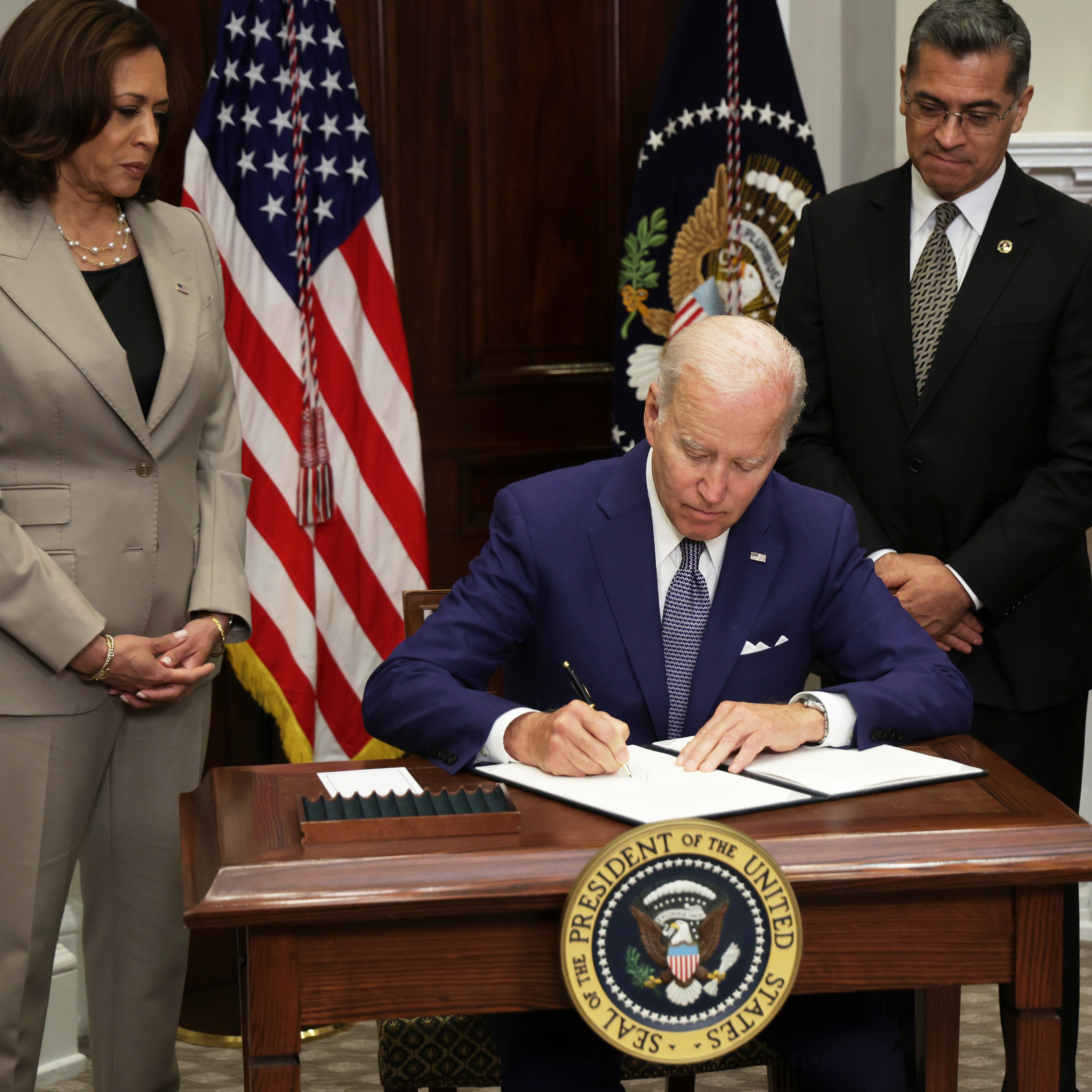 Breaking Down President Biden’s New Executive Order on Abortion Rights
Breaking Down President Biden’s New Executive Order on Abortion Rights\201cWe feel really strongly, particularly given the tremendous amount of legal chaos that has ensued since this decision, that it’s incumbent on us to be careful.\201d
By Lorena O'Neil Last updated
-
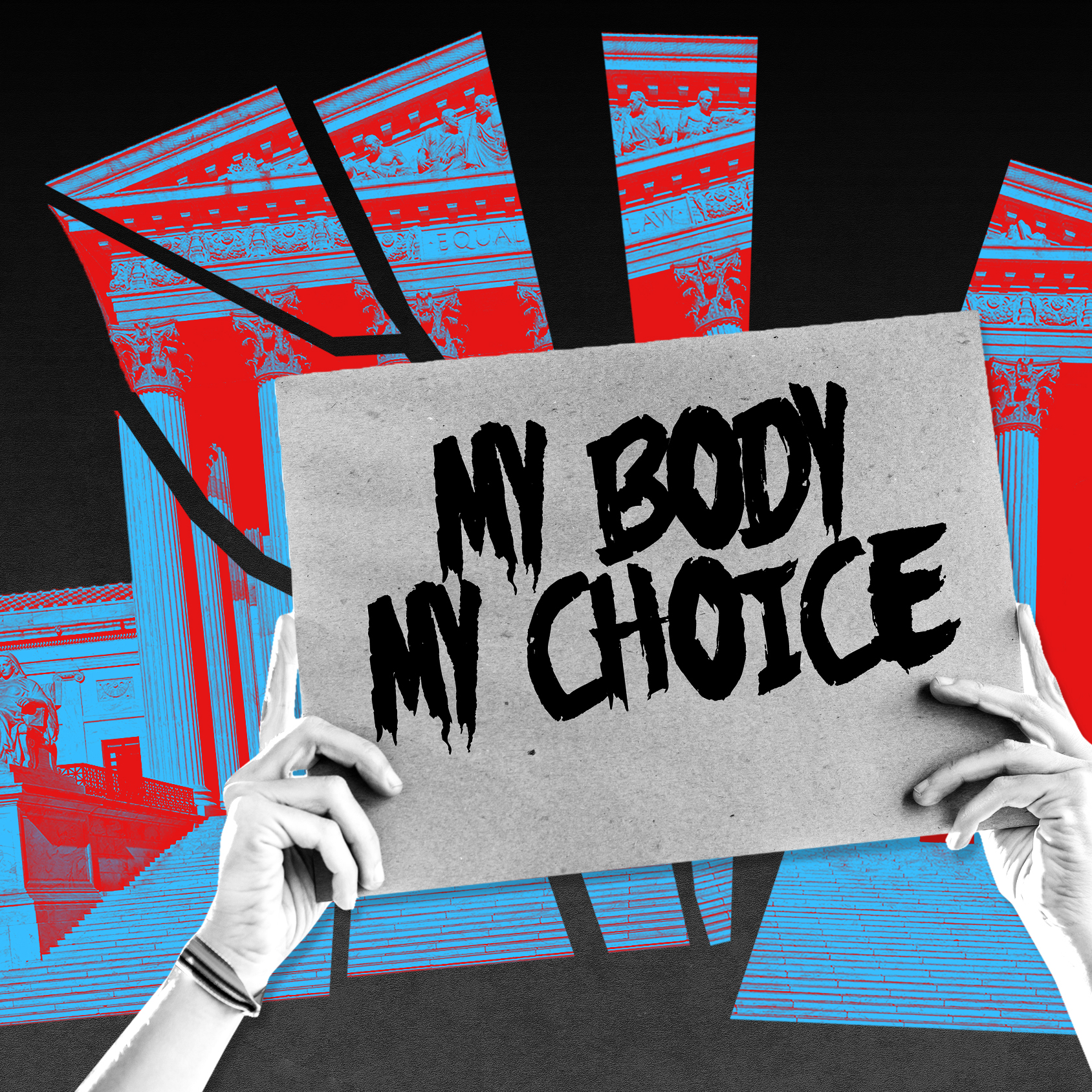 14 Abortion Rights Organizations Accepting Donations to Support Their Fight
14 Abortion Rights Organizations Accepting Donations to Support Their FightFeatures 'Roe' is no longer the law of the land, but these organizations won't stop fighting.
By Gabrielle Ulubay Published